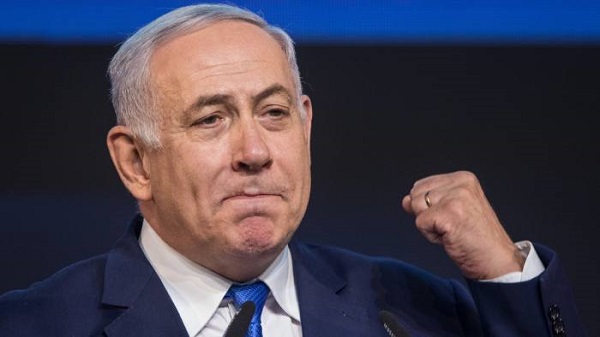Alwaght- In the past few weeks, Iran embarked on more active diplomacy in a bid to complete the talks for signing strategic cooperation pacts with two world powers China and Russia.
The Iranian-Chinese pact was first to be given publicity, according to which China will invest $400 billion in Iran within 25 years. Tehran and Beijing are projecting a long-term partnership in a variety of areas, especially energy and transportation.
Then came reports about the extension of the already-in-effect pact between Iran and Russia. During the Iranian Foreign Minister Mohamad Javad Zarif's visit to Moscow on July 21, the two countries discussed extending and updating a series of agreements signed between the two countries in March 2001. Although they are scheduled to extend automatically for five more years before they end, the agreements are going to be updated to suit the new conditions and address the common challenges and requirements of the closer partnership.
Tehran’s active diplomacy to ink the partnership pacts with two powers is something that can be dubbed the “shift to East’ strategy. Tehran, disappointed with the Western anti-Iranian policy and strategy especially the European failure to stay committed to the nuclear deal, now is adopting a policy of shift to the Eastern powers.
In response to the new Iranian strategy, the US and the Israeli regime rejected any Iranian pacts with China and Russia. Among the opponents of the upcoming pact, Tel Aviv is the staunchest detractor that expressed deep concern.
But why are the Israelis worried about the Iranian shift to East policy? Essentially, what threats do they see the Iranian foreign policy bears to their interests?
The reasons Tel Aviv is worried about Iran’s setting of policy towards the East
A couple of reasons drive the Israeli regime leaders to grow worries about the new Iranian policy.
1. Over the past four decades, the Israeli regime locked on lobbying to maintain the pressures and sanctions on the Islamic Republic of Iran. It intensified this policy in recent years by using its strong lobbies in the US to keep the illegal sanctions of Washington against Tehran concerning the Iranian nuclear program. The Israelis are hopeful that the US embargo that targets Iranian oil, banking, and transportation will yield its fruits and force Iran to raise the white flag in the face of the US demands. But any agreement with China means that the Israeli dreams of Iranian surrender will be badly shattered.
The Israelis feel the pain more when they know that according to the terms of the agreement, Iran will supply oil to China for 25 years which means US embargo will be a failure and China during this time will provide Iran with 400 billion in investment.
China has vowed that it will expand its presence in the Iranian banking and communications sectors. China will also, among tens of infrastructural projects, will build new ports and railways for Iran. The Eastern economic heavyweight will also develop Iran’s fifth-generation, or 5G, network and navigation system.
The implications of this accord are clear. China has already decided to flout the US sanctions on Iran, something infuriating and frightening the Israeli regime.
In addition to the pact with China, the extension of agreements with Russia will put Tel Aviv before a fact: The US sanctions against the Islamic Republic have not worked. During the two decades of its strategic partnership with Iran, Russia delivered, though with delay due to the Western pressures, the advanced S-300 air defense missiles and completed the Bushehr nuclear power plant in western Iran. The power plant contract was initially signed with the West under the Shah of Iran but the contractors quitted the project when the 1979 Islamic Revolution abolished pro-Western monarchy in Iran and installed the Islamic Republic. The broader nuclear partnership between Iran and Russia under the updated agreement with regard to Moscow defending of Tehran’s right to have nuclear industry will never be good news to the Israelis.
2. Another reason fueling Tel Aviv worries is the inevitable impacts of such pacts on the Israeli relationship with both China and Russia. The Israeli leaders are in constant efforts to have by them China, Russia, and Europe, beside the US which is their ally since the Israeli regime declared existence in 1948.
Over the past years, Tel Aviv strove for tighter ties with both Russia and China, which the Israelis understand them to be the titans of the inevitable, in-the-making multipolar world order. It knows that expanded ties of Iran with the two powers will on the one hand disappoint the Israeli regime about winning their full-scale support to its agenda and on the other hand will lend more weight and strength to the Iranian regional policies. This is important especially that in the past years the Russian-Chinese policies in the significant West Asia region have been more consistent with the Iranian policies in the region. The Syrian crisis is a success story of their partnership.
3. As the Iran-China strategic pact preparations go ahead, Tel Aviv may have to revoke the contract with China for Haifa Port expansion along with some other infrastructural projects, as well as scientific and technological cooperation agreements. The same Chinese companies that have contracts to develop fast railways in the Israeli regime will start operations for similar projects in Iran.
Certainly, the new chapter in the Iranian foreign policy and shift to East will leave in apprehension the Israeli leaders. Perhaps they have never been this anxious about the Tehran cooperation with Beijing and Moscow.



























